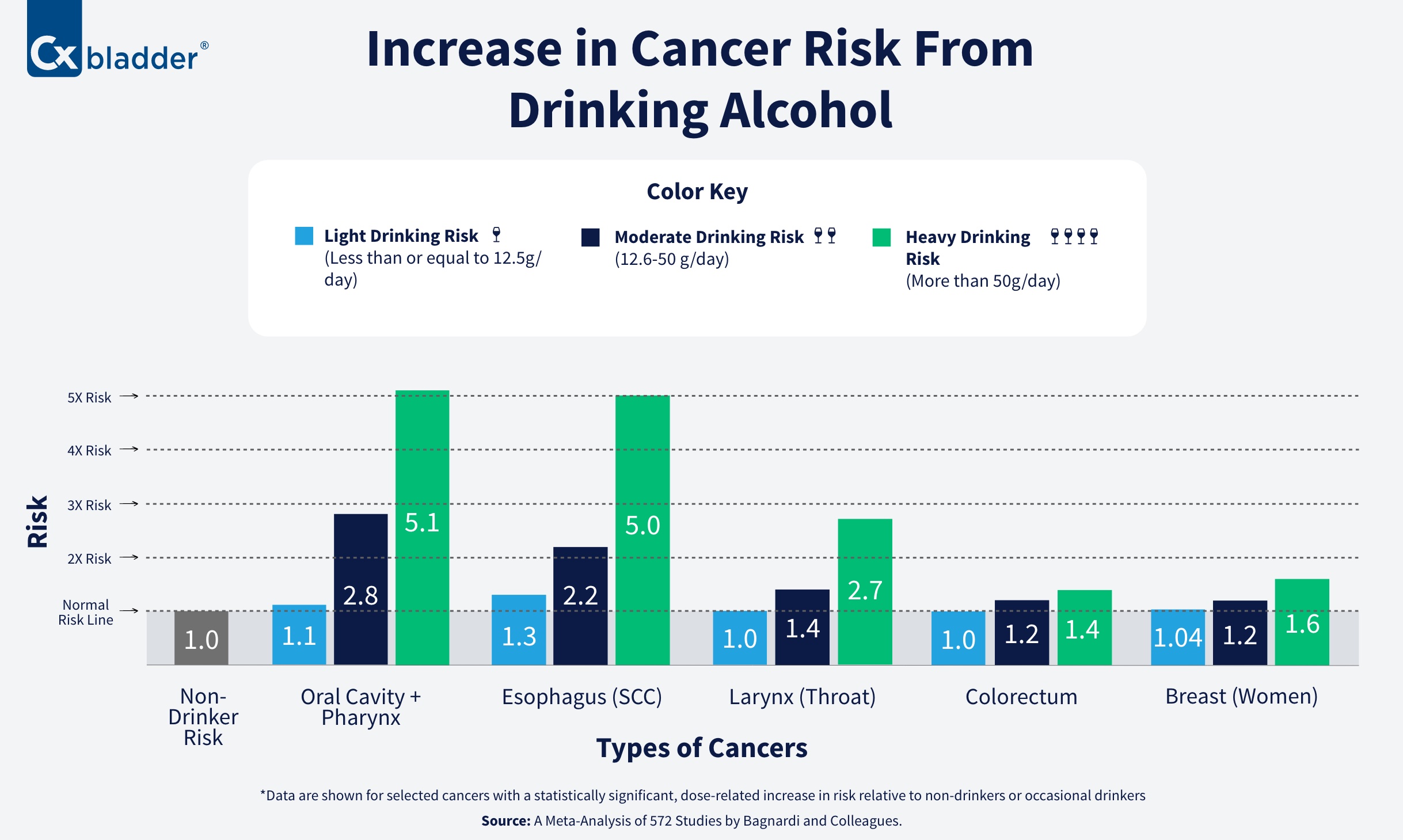The idea of enjoying a glass of wine daily has long been associated with heart health and the Mediterranean lifestyle.
But how safe is it really?
When we dig deeper into the effects of wine, or any alcohol, the studies offer a more nuanced view that weigh potential benefits against known risks. So is it really safe to drink a glass of wine daily? Lets explore and discuss.
Is It Safe to Drink Wine Every Day?
Moderate wine consumption is generally considered safe for most healthy adults. In the U.S., moderation is defined as up to one 5-ounce glass per day for women and up to two for men. This level of intake has been linked to certain health benefits, particularly when wine is consumed with meals.
However, emerging evidence suggests that even light drinking may carry health risks. For instance, recent studies have found that even low levels of alcohol consumption can increase cancer risk and contribute to higher mortality rates, particularly among older adults. The World Health Organization has also emphasized that there is no truly “safe” level of alcohol consumption when it comes to cancer risk.
Is There Any Research on the Long-Term Effects of Drinking Wine Daily?
Long-term moderate wine consumption has been associated with certain health benefits, such as a reduced risk of cardiovascular disease and improved cognitive function. Some studies also suggest wine may contribute to lower rates of type 2 diabetes when consumed in moderation with meals.
However, other large-scale research challenges the idea that daily alcohol consumption is beneficial. Newer studies suggest that even moderate drinking may increase the risk of high blood pressure, atrial fibrillation, and certain types of cancer. Heavy or prolonged use can also lead to liver disease, mental health problems, and alcohol dependence.
Most Research on Wine’s Health Benefits are Influenced by the Alcohol Industry
It’s important to consider the source of information about alcohol and health.
Many studies promoting the health benefits of wine have been funded, at least in part, by the alcohol industry — including wine producers and alcohol trade organizations.
Industry-funded research tends to emphasize the potential cardiovascular benefits of moderate drinking while downplaying or omitting information about serious risks like cancer, liver disease, and addiction.
Independent research, which is not tied to alcohol industry funding, has increasingly found that even small amounts of alcohol consumption carry measurable health risks.
Organizations like the World Health Organization now advise that there is no completely safe level of alcohol consumption when it comes to preventing cancer and other chronic diseases.
Thus, while moderate wine consumption might fit into certain lifestyles, it’s important to approach claims of health benefits with caution, particularly when industry sponsorship may bias the findings.
Is There a Difference Between Drinking Red Wine and White Wine in Terms of Health Benefits?
Red wine often receives more attention for its potential health benefits because it contains higher levels of certain antioxidants, such as resveratrol, compared to white wine. These antioxidants have been studied for their possible roles in reducing inflammation and supporting heart health.
However, while red wine may have a slight advantage nutritionally, it’s important to remember that both red and white wine contain alcohol, and the associated risks apply regardless of the type.
Recent research also suggests that any health differences between red and white wine are relatively small compared to the overarching risks of alcohol consumption overall.
How Much Wine Is Too Much to Consume Daily?
Exceeding moderate drinking guidelines increases health risks significantly. According to the National Institute on Alcohol Abuse and Alcoholism:
-
Women: Consuming more than 8 drinks per week is considered heavy drinking.
-
Men: Consuming more than 15 drinks per week is considered heavy drinking.
Heavy drinking is associated with a much higher risk of liver disease, heart disease, certain cancers, and mental health disorders. Regularly drinking more than the recommended amounts can also lead to alcohol use disorder.
While a daily glass of wine may fit within moderate drinking guidelines and has been featured as part of certain healthy diets, it is important to weigh the potential risks carefully.
Given the growing body of evidence linking even low levels of alcohol consumption to cancer and other health risks — and considering the influence of alcohol industry sponsorship on much of the research promoting wine’s benefits — moderation and personal health considerations are key.
Dr. Sergio Guiteau is a physician who is board-certified in Family Practice and Sports Medicine with added certifications in Aesthetic Medicine. He specializes in Preventive Medicine, Sports Medicine, and Anti-Aging Medicine and blogs on Advancedrejuv.com/blog

